Animals
-
 Neuroscience
NeuroscienceA frog study may point to where parenting begins in the brain
Two brain regions, including one active in mammal parents, lit up with activity in both male and female poison frogs when caring for their tadpoles.
-
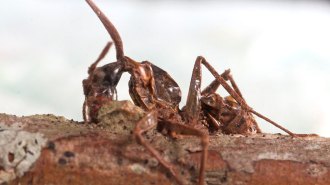 Animals
AnimalsA deadly fungus gives ‘zombie’ ants a case of lockjaw
Clues left on infected ant jaws may reveal how the ‘zombie-ant-fungus’ contracts ant muscles to make their death grip.
-
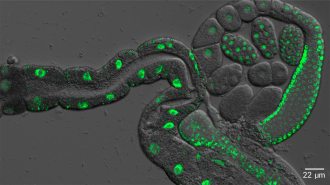 Genetics
GeneticsThis gene may help worms live longer, but not healthier
Antiaging therapies may have trade-offs, research on worms suggests.
-
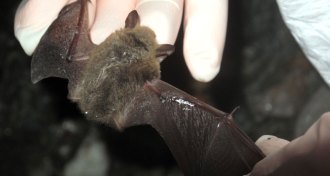 Life
LifeSpraying bats with ‘good’ bacteria may combat deadly white nose syndrome
Nearly half of bats infected with white nose syndrome survived through winter after being spritzed with antifungal bacteria, a small study finds.
-
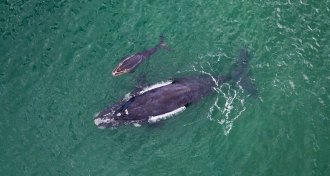 Animals
AnimalsSouthern right whale moms and calves may whisper to evade orcas
Mother-calf whale pairs call to each other quietly to stay in touch while avoiding attracting the attention of predators, a study suggests.
-
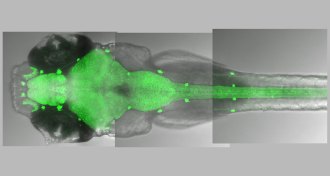 Neuroscience
NeuroscienceBoth fish and humans have REM-like sleep
Sleeping zebrafish have brain and body activity similar to snoozing mammals, suggesting that sleep evolved at least 450 million years ago.
-
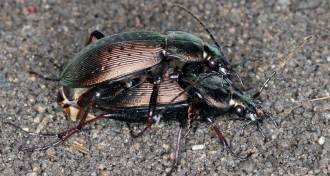 Animals
AnimalsGround beetle genitals have the genetic ability to get strange. They don’t
A new look at the genetics of sex organs finds underpinnings of conflicts over genital size.
By Susan Milius -
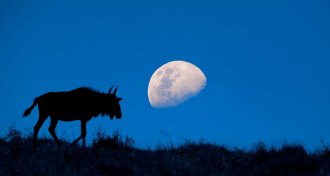 Ecosystems
EcosystemsMoonlight shapes how some animals move, grow and even sing
The moon’s light influences lion prey behavior, dung beetle navigation, fish growth, mass migrations and birdsong.
By Erin Wayman -
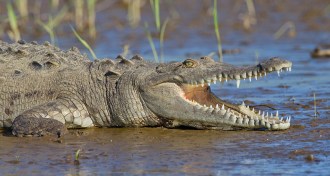 Animals
AnimalsSome ancient crocodiles may have chomped on plants instead of meat
Fossil teeth of extinct crocodyliforms suggest that some ate plants and that herbivory evolved at least three times in crocs of the Mesozoic Era.
-
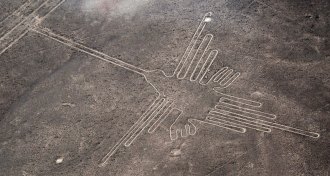 Archaeology
ArchaeologyPeru’s famous Nazca Lines may include drawings of exotic birds
Pre-Inca people depicted winged fliers from far away in landscape art.
By Bruce Bower -
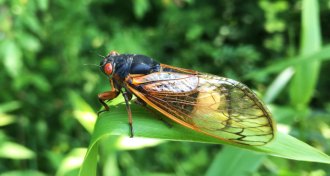 Life
LifeThese fungi drug cicadas with psilocybin or amphetamine to make them mate nonstop
Massospora fungi use a compound found in magic mushrooms or an amphetamine to drive infected cicadas to mate and mate and mate.
-
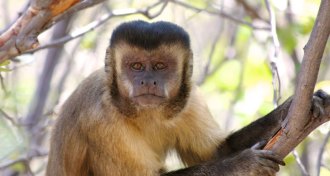 Archaeology
ArchaeologyCapuchin monkeys’ stone-tool use has evolved over 3,000 years
A Brazilian archaeological site reveals capuchins’ long history of practical alterations to pounding implements, researchers say.
By Bruce Bower